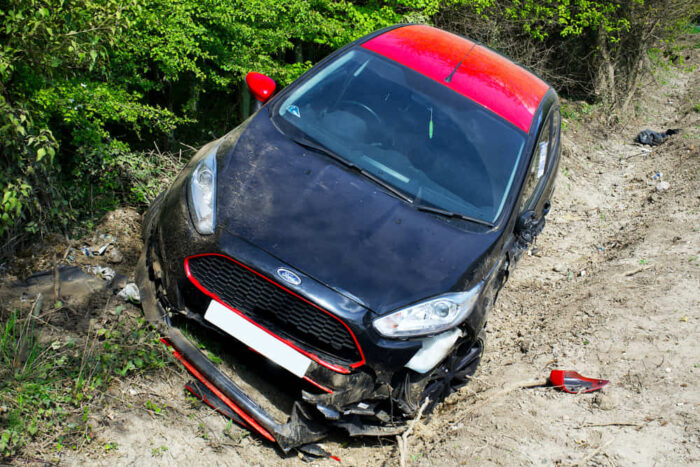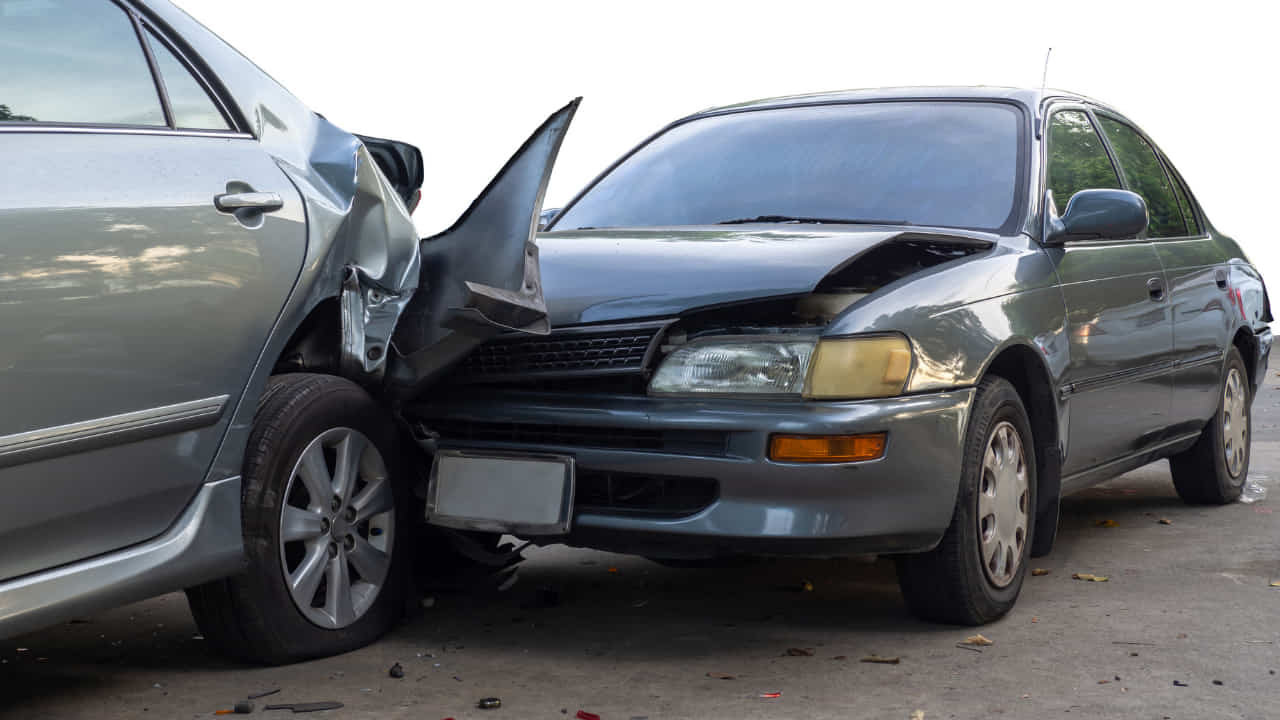Accidents can occur, and this has nothing to do with how well a car has been maintained. A car write-off is when your car is damaged to an extent that it’s no longer safe to drive, and the insurance company writes it off.
Aside from road accidents, a car write-off can also occur from damages as a result of flooding, fire, falling trees on your car, thus making it extremely difficult to sell due to a decrease in the car market value.
In this article, we will discuss the various insurance write-off categories in the UK, the implications of buying a write-off car, and how to conduct an insurance write-off check on a secondhand car before committing to a purchase.
READ ALSO: Can You Insure a Car Without an MOT?
What is Insurance Write-Off?
When a car is involved in an accident or stolen and then recovered, insurance companies will assess the damage or loss and decide whether to repair the vehicle or write it off. If the cost of repairing the car is more than its value, the insurance company will declare it a write-off and pay out the market value of the car instead.

How Do I Know if My Car is a Write-Off?
Once an accident occurs, your insurance firm will inform you about the car’s write-off status. If the car is extremely damaged and not economical to repair, the insurance will ensure the car is scrapped.
If your car is marked as a write-off, simply follow these steps:
- Provide your insurance company with your V5C logbook. For your own records, ensure you take out the yellow ‘sell, transfer or part-exchange your vehicle to the motor trade’ section.
- Inform the DVLA that your car has been written off. Failure to do so could result in a £1,000 fine.
- If you would like to keep your registration plate, you can apply to keep the registration number.
A car write-off does not necessarily mean that your car can no longer be of value again. You may be able to repair your vehicle for use again or sell it for parts, depending on the insurance write-off category it was placed in.
Insurance Write-Off Categories
In the UK, insurance write-offs are categorised as follows:
- Category A: This means the car is so badly damaged that it’s beyond repair and should be crushed. They also can’t be used for parts.
- Category B: These cars are also beyond repair but can be used for spare parts.
- Category C: These are cars that could be repaired but the cost of the repairs is more than the value of the car. You can still drive the car once its roadworthiness has been restored. It was replaced by Category S in 2017, indicating structural damage.
- Category D: These are cars that could be repaired, but the cost of the repairs is more than the car’s value, and the insurer has decided to write it off. The repair cost may be less than the vehicle’s value, but other costs, including transporting the car, will definitely take it over the limit. It was replaced by Category N in 2017, indicating non-structural damage
- Category S: These cars have sustained structural damage, but the insurer has deemed them repairable. DVLA mandates all category S cars to be registered again before putting them back on the road.
- Category N: These are cars that have not sustained structural damage but have been deemed repairable by the insurer. In this category, you do not need to register the car again, but you will need to inform the DVLA of the car’s write-off status.
It’s important to note that cars in categories A and B are illegal to sell and should be scrapped. Category C and D cars can be sold, but the seller must declare the car a write-off to potential buyers.
What are the Implications of Buying a Car Write-Off?
Buying a write-off car can be a good way to get a cheap car, but it’s important to be aware of the implications.
- Firstly, write-off cars are often harder to insure, and some insurers may refuse to cover them. This is because they’re considered riskier to insure as they have been involved in an accident or stolen.
- Insurance write-off cars can be more expensive to repair as they may require specialist parts or repairs.it’s also worth noting that the car may not be as safe as before the accident, even if it has been repaired to a high standard. It’s important to have the car inspected by a mechanic before you buy it to ensure it’s roadworthy.
- Buying an insurance write-off can affect its resale value Some buyers may be put off by the fact that the car has been involved in an accident, which could make it harder to sell in the future. Additionally, the car may be worth less than a similar car that has not been written off.
How to Check if a Car is an Insurance Write-Off
If you’re considering buying a secondhand car, it’s important to check whether it’s been written off by an insurance company. You can do this by conducting a car write-off check, which will show you whether the car has been written off and the insurance write off category.
The insurance write-off check will also show you other important information about the car, like auction records, previous keepers, MOT History, mileage story and more.
It’s worth noting the car write off check may not show all the information about a car, so it’s still important to have the car inspected by a mechanic before you buy it.
Read Also: Penalties for Getting Caught Driving Without Insurance in the UK
Should I buy a Car that has been Written Off?
Buying a car that has been written off is not necessarily a bad thing. It can be an excellent way to get a car at a lower price than usual, but it is crucial to understand the risks involved.
The most significant risk of buying a car that has been written off is that it may not be as safe as a car that has not been written off. Even if the car has been repaired, it may not be to the same standard as a new car.
Additionally, some insurance companies may refuse to insure a car that has been written off, or they may charge higher premiums. This is because they consider these cars to be a higher risk.
If you are considering buying a car that has been written off, it is crucial to have it thoroughly checked by a mechanic. They will be able to identify any potential safety issues and ensure that the car is in good working order.
Download Our Car Write-Off Check Mobile App
How to Avoid Buying a Written-Off Car?
To avoid buying a write-off car, take the following steps:
- Check the car’s history before you buy it. This will tell you if the car has been written off. You can obtain a Vehicle History Check from various providers, including Smart Car Check, which is considered one of the most reliable providers in the UK market.
- Inspect the car thoroughly before buying. Look for any signs of damage or repairs, such as uneven panel gaps, paint overspray or mismatched colours. A professional mechanic can help you identify any potential problems and provide you with an assessment of the car’s condition.
- Take the car for a test drive. This will give you a chance to check the car’s handling, braking, and acceleration. It will also allow you to listen for any unusual noises or vibrations that could indicate a problem.
- Consider buying from a reputable dealer. Dealers are required to provide accurate information about the car’s history, and they are legally obligated to sell cars that are roadworthy and safe to drive. If you buy from a private seller, you have fewer legal protections, and it can be more difficult to verify the car’s history and condition.
Conclusion
Insurance write-off cars are common in the UK, and they can significantly impact a car’s value and safety. If you are in the market for a used car, it is essential to understand what insurance write-off is, how it affects a car’s value, and how to avoid buying a written-off car. By taking the necessary precautions, you can minimise the risks and ensure that you buy a car that is safe, reliable, and of good value.
Frequently Asked Questions
When do insurance companies write off a car?
A car will be written off by the insurance provider if the costs of repair is higher than the car’s current market value.
What happens to my insurance if my car is written off?
Once your car is written-off, you will no longer be insured to legally drive it. The painful part is that you might not be getting any refund on any insurance premiums you have paid already.
What happens if I still owe money on my vehicle when it’s written off?
Discuss the matter with your finance provider. It’s either you use your settlement fee to purchase another car while you pay off your finance or pay off the outstanding finance if it’s enough. If not, prepare to shoulder the responsibility of finding the rest of the money.
Can I insure a write off car?
You can get car insurance for a written-off car, but it will largely depends on the category. Once you find coverage, get in touch with your insurance company to share any write-off information with them. Ensure this is carried out before taking out the policy.
How long does it take for insurance to pay out for write-off?
No fixed schedule for processing the settlement fee, so the time it takes to receive your insurance pay-out will vary. Typically, you should receive a pay-out within 30 days of a claim, but some cases may be faster.




